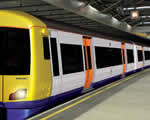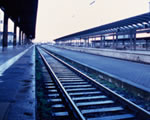 Go to main content
Go to main content
Archive Website of the UK government
Please note that this website has a UK government accesskeys system.
Main menu
Page menu
Travel and transport

Complaints about high rail fares or station car-park charges

If you think a train fare or car-park charge at a station is too high, contact the train company. When they set fares, train companies must follow competition law. Get advice on complaints about high rail fares or station car park charges and how they are affected by competition law.
Complaints to the train company
Train company contacts
The National Rail Enquiries website has a list of train companies and their contact details
Train companies set fares and station car-park charges on their routes. They can respond to questions or complaints about the prices of fares and car-park charges.
Some standard-class fares are regulated (monitored) by the government as part of agreements with the train companies. Your train company can tell you whether your fare is regulated. If your complaint is about how fares are regulated, you should contact the appropriate government department.
See 'Rail services in Great Britain' for more information on how fares are monitored and advice on which department to contact. 'Making a complaint about rail services' has advice about what to say in your complaint and how to follow it up.
How competition law affects rail fares and station car-park charges
Train companies compete for government contracts ('franchises'), to:
- run train services
- provide car parks at stations
When running their franchise, train companies have to stay within competition law. Under the Competition Act 1998, it is illegal for train companies to do certain things, like:
- fixing prices
- using their powerful position in the market to take advantage of passengers
Train fares and competition law
If a train company stays within competition law, the prices they set for fares won't be illegally high.
A train fare is unlikely to be illegally high if it is:
- a regulated fare
- less than the price of a regulated fare that you could use instead
- similar to the price of a regulated fare for roughly the same sort of journey sold by a different train company
- a first-class fare (because passengers choose to pay more for first-class tickets in return for a higher quality of service)
- increasing roughly in line with the rate of inflation
- for a journey where you could realistically chose to travel on another form of transport, like a coach

If you're unhappy about the price of parking at a train station, contact the station operator
Station car-park charges and competition law
Prices at station car parks aren't regulated - the station operator decides how much to charge. It's unlikely that a station car-park charge will be breaking competition law.
A charge will only be looked into if it's higher than the charge for nine out of ten car park spaces in the region and:
- there aren't other long-stay car parks or on-street parking nearby (within walking distance, or roughly one kilometre/half a mile away)
- you couldn't realistically walk, cycle, or use public transport instead of driving to and parking at that station
- there are no other stations with cheaper car parks within about 15 minutes' drive
- you couldn't use other forms of transport for the whole journey
Complaining about rail fares or car-park charges breaking competition law
The Office of Rail Regulation (ORR) has powers to investigate when a train company has broken competition law. If you think a fare or car-park charge is illegally high, you can make a complaint to ORR. You must make your complaint in writing and provide supporting evidence - there is guidance on the complaint form about how to do this.
 Facebook
Facebook Twitter
Twitter StumbleUpon
StumbleUpon Delicious
Delicious Reddit
Reddit
